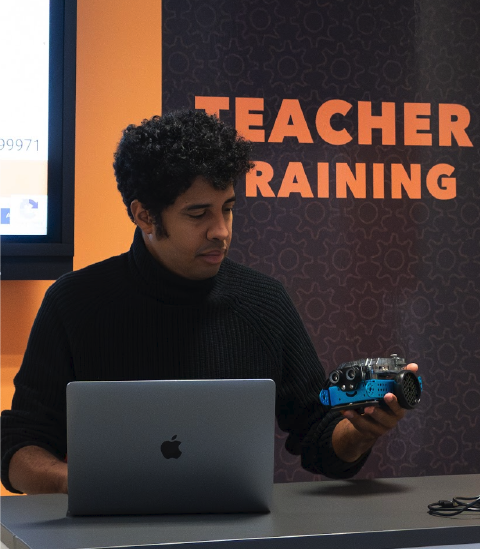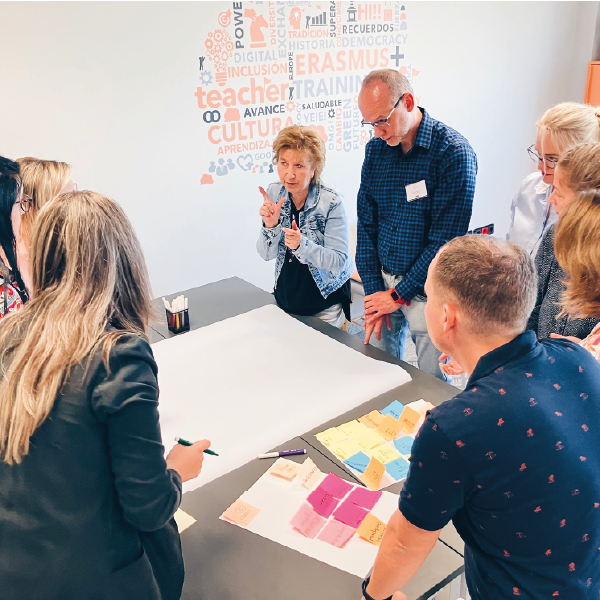Description
The importance of developing the soft skills will increase with time. Although the role of educators in teaching basic professional skills is very important. It is precisely the soft skills that allow application of professional skills in any changeable environment.
Music and other non-formal educational tools. Music as a tool of promotion of social inclusion, initiation of intercultural dialogue, promotion of tolerance and mutual understanding and fight against aggression and radicalism, using the beneficial effects the art of music.
Education through Art. Art is a significant tool for promotion of cultural diversity, accessibility and equality of opportunities and the counteraction of discrimination and exclusion.
Drama based activities, storytelling. The participants will practice English through various methods like improvisation, role plays, short class plays that engage them and their students in the teach-learn process.
Mindfulness in the classroom and life. Through mindful and compassionate training, teachers are skilled at creating a joyful learning atmosphere, showing understanding and support toward learners, as well as inspiring learners with enthusiasm and joy.
Participant:
- Demonstrates readiness and initiative in teaching;
- Has strong knowledge of vocational training and teaching in a foreign language;
- Predicts and adapts activities to engage the group effectively;
- Approaches tasks with a positive attitude, enhancing student mood and abilities;
- Evaluates and applies various teaching methods;
- Improves oral and written English skills;
- Understands the role of simulations, role-play, and storytelling in language learning;
- Develops communication, collaboration, and critical thinking skills;
- Recognizes the value of teacher vs. learner-generated content;
- Shares creative ideas and resources for interactive English teaching;
- Promotes intercultural awareness and strengthens European collaboration in teaching English;
- Offers insights into different education systems.
Methodology Overview:
The methodology combines theoretical lessons, best practice examples, discussions, and hands-on workshops. Participants will enhance their English skills through simulations, role play, and action learning, focusing on interactive methods.
Positive Psychology:
Positive emotions are essential for engagement in language learning. Teachers’ emotional attributes significantly impact students’ motivation and achievement. Effective educators promote long-term language success by creating a positive, engaging environment.
Key Methods:
- Direct Method: English-only communication to improve speaking skills through immersion.
- Total Immersion: Focus on business and social communication through full immersion.
- Audio-Lingual Method: Emphasizes language structure through repetition and communication.
- Total Physical Response (TPR): Learning by doing, with a focus on listening and physical responses.
- Lexical Approach: Focuses on teaching high-frequency vocabulary through authentic materials.
- Task-Based Learning: Students complete tasks in English to improve language proficiency.
- Communicative Language Teaching: Aims for effective real-world communication using role play, games, and group work.
- Eclectic Approach: Combines different methods based on what works best for the learners.
Knowledge:
The participant:
-
Applies modern teaching methods and adapts them to the classroom.
-
Compares Spanish and home country education systems.
-
Engages students with varied methods and understands the communicative approach.
-
Enhances cultural awareness and confronts stereotypes.
-
Explores new educational approaches for diverse classrooms.
-
Understands the teacher's role in integrating immigrant students and shares best practices.
Skills:
The participant can:
-
Use personal teaching experience effectively.
-
Implement diverse teaching methods and evaluate quality.
-
Improve workplace communication skills in English.
-
Enhance career prospects and language proficiency for international business.
-
Boost confidence in English and master virtual collaboration tools.
NEXT COURSES
Our Pricing
100% funded by the Erasmus+

Services included
- Pre-arrival information.
- Tuition & training materials.
- Coffee break.
- Admin & organizational costs.
services
- Accommodation (hotels & self-catering apartments).
- Half-day and one-day trips.
- Cultural activities.
- Airport transfer.
- Local transport.
We want to read you
Reach out to us using our contact form and we will get back to you shortly.

